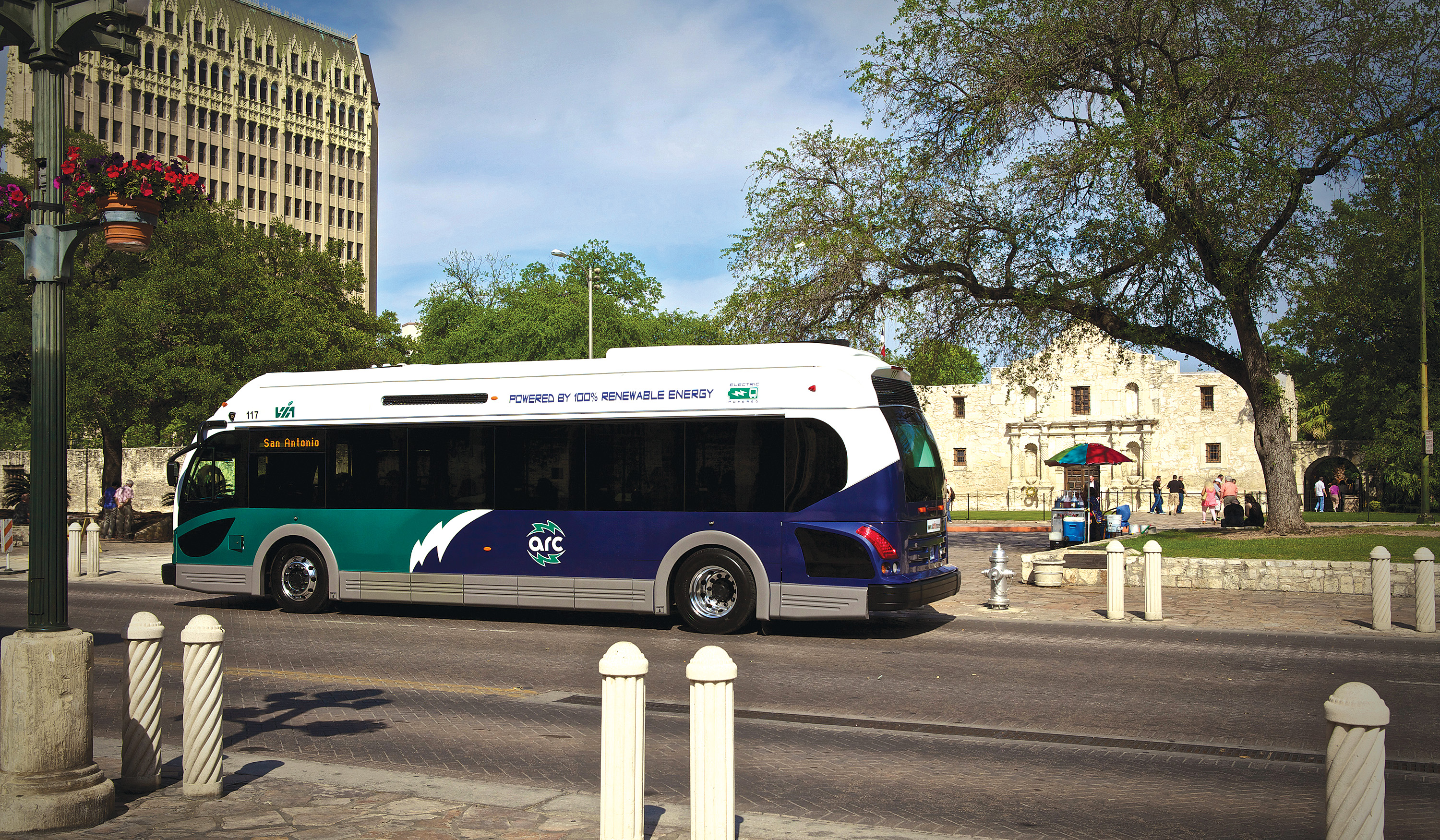
FTA makes $24.9 million available for the adoption of low or no-emission buses
The U.S. DOT Federal Transit Administration (FTA) has made $24.9 million available through its Low or No Emission Vehicle Deployment Program (LoNo). The intent is to encourage widespread adoption of more reliable green-energy buses in transit fleets in communities nationwide.
“The LoNo program will make a real difference in people’s lives by helping them get to work or school while letting them breathe clean air,” says Transportation Secretary Anthony Foxx. “We are proud to initiate a new program that reflects the Obama Administration’s commitment to reducing our nation’s dependence on oil while developing more sustainable sources of energy here at home.”
Established under the Moving Ahead for Progress in the 21st Century Act (MAP-21), the FTA LoNo program focuses on commercializing the cleanest and most energy-efficient U.S.-made transit buses to help reduce emissions like carbon dioxide and carbon monoxide.
“Federal investments in green energy and related technologies have been a tremendous catalyst for America’s innovators and domestic manufacturers as they find new ways to power public transportation for the future,” says FTA Administrator Peter Rogoff. “We are excited to help improve the transit riders’ experience by bringing more of the cleanest and greenest buses available to their cities and towns—and to spur new jobs in a growing industry.”
FTA will award LoNo funds on a competitive basis to transit agencies and state transportation departments working either independently or jointly with bus manufacturers already making low- and zero-emission buses.
Priority will be given to proposals that:
• Seek to fund the incremental difference between a standard bus and a LoNo vehicle, as a way to further stretch procurement dollars.
• Incorporate the highest level of U.S.-made content, exceeding Buy America’s current 60 percent threshold.
• Demonstrate a long-term commitment to expanding LoNo fleets beyond what these program funds support, including the use of Federal formula funding.
According to FTA, in addition to the environmental benefit, LoNo transit buses will help transit agencies save money in the long run on fuel and maintenance costs. The National Renewable Energy Laboratory says zero-emission buses can achieve more than double the fuel economy of buses running on diesel and other fuels.
Of the $24.9 million available in LoNo grant funds, $21.6 million is for buses and $3.3 million is to support facilities and related equipment. Transit agencies may use a portion of their annual FTA formula funds to purchase additional vehicles.
The FTA says its LoNo program builds on the success of the National Fuel Cell Bus Program, which invested in the research, development and testing of alternative fuels and related equipment, such as electric charging stations, for the transit industry.
This program successfully committed $90 million over seven years to innovative research, demonstration and deployment projects to reduce the cost of fuel cells for transit use. The program received its final funding in FY2013.
